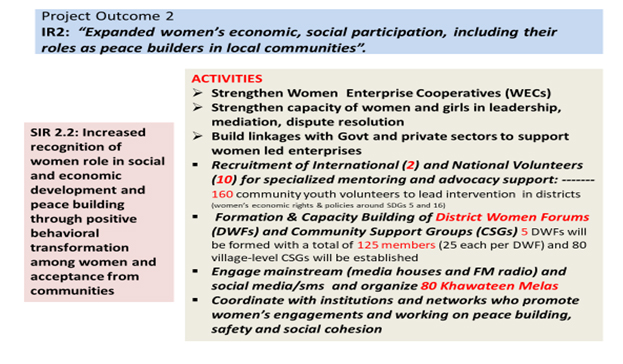Women Empowerment
Poverty is ‘gendered’ because women and men experience poverty differently – and unequally – and become poor through different, though related, processes
Women, who are the caregivers and primary influencers of the next generation, are facing the greatest hardships. According to a US study, the proportion of men and women in Pakistan is 111 men per 100 women — fully 11 men more for every 100 women. This makes it one of the most unequal and unusual sex ratios in the world. This discrepancy is particularly obvious among people over 50, where men account for 7.1 per cent of the country’s total population, and women for less than five per cent, apparently reflecting the fact that women are dying in much larger numbers at younger ages (or that their births and deaths are not always documented). The figure also reflects their lack of access to quality medical care, negative attitudes and mindset towards women, their secondary status, and the continuation of laws and policies that negate women’s personhood and rights.
In FATA & KPK, several factors may contravene these estimates: : during the last decade, two natural calamities, the earthquake in 2005 and the floods in 2010,and above all the never ending war on border , affected the entire country, resulting in numerous deaths and high levels of internal migration. . Even under normal circumstances, relatively high rural to urban influx of the population is regularly on-going.
Newborn babies are still thrown into garbage dumps — and the majority of them are girl babies. Some of the other related inequalities and gender discrepancy in the region are: violence and abuse, including acid burns, ‘stove bursts’, and honor killing, chronic malnutrition, life-long neglect of health, and physically demanding workloads. Early marriages, non availability of a decent system for women’s education, non availability of health or population planning,
By knowing such facts and figures, addressing and identifying the critical immensity of the problem REPID has accepted the challenge and are voluntarily working to decrease the gap in the system i.e. The public and the powers-that-be are together responsible for this harsh violation of women and their human rights.
Ending discrimination in society against women and girls and promoting gender equality one of the core objectives of REPID through dialogue, pro-active interventions and coalition building by developing linkages with local CBOs and grass root organizations. REPID has taken number of steps to improve the lives and social standing of women those ripple effects on health care, education, and socio-economic development throughout the poorer communities. REPID is helping girls to complete their education and provide skill trainings to women’s and link with Market to enable them support their families and employing women in different departments. It is due to efforts of REPID and such firms that literacy rates for women, women’s political participation, maternal health is improving in FATA with rapid growth.





